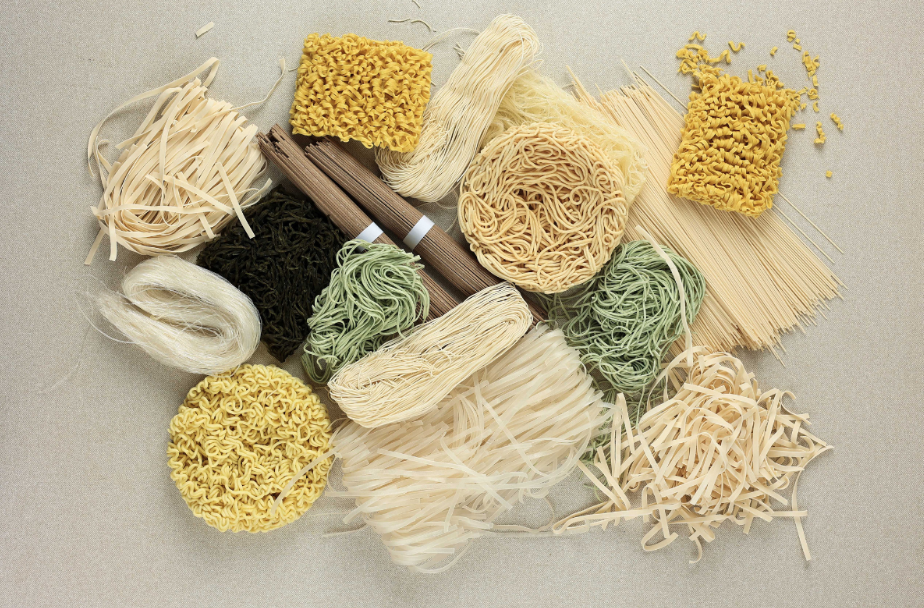Ever wandered around your pantry, stumbled across that pack of rice noodles and wondered—do rice noodles expire? It’s a common curiosity, especially if you’re the type who likes to stock up on pantry staples.
Whether you’ve got rice noodles, glass noodles, or vermicelli tucked away, it’s important to know how long they last and the best ways to store them.

When Will the Dried Rice Noodles, Glass Noodles, or Vermicelli Expire?
The great news is that unopened packs of these noodles are pretty long-lasting. If stored correctly—think your kitchen cupboard, away from the stove—they can last quite a while. Typically, these noodles have a shelf life of about 2 to 3 years, just waiting for their moment to shine in your next culinary creation. The key here is keeping them dry and protecting them from any sort of moisture that might sneak in and cause them to spoil or go stale.
How Long Do Cooked Rice Noodles, Glass Noodles, or Vermicelli Last in the Fridge?

Let’s say you’ve cooked up a storm and have some leftover noodles. How long do they last in the fridge? Here’s a handy guide to help you make the most of your leftovers:
Rice Noodles
Back to that burning question from earlier—do rice noodles expire? Yes, and once cooked, they’re best enjoyed within 3 to 4 days. Just pop them in an airtight container and into the refrigerator they go! Having said that, it’s always a good idea to savor them sooner rather than later since they can start to dry out and lose that perfect chewy texture over time.
Glass Noodles
Glass noodles, often made from mung bean starch, have a similar lifespan. When stored properly, cooked glass noodles can last 3 to 5 days in the fridge. These noodles tend to hold up a bit better than rice noodles, maintaining their characteristic springy texture a day or two longer.
Vermicelli
Vermicelli noodles, whether made from rice or wheat, also have a fridge life of 3 to 5 days. However, they can become mushy if stored with sauces, so it’s best to keep them plain and add sauces when you’re ready to serve.
Tips for Extending Noodles Freshness
Storage is always key. Here are some friendly and super practical tips to keep your noodles fresh for longer:
Using Airtight Containers
Once you’ve opened a pack of noodles and only used part of it, transfer the rest into an airtight container. Those fancy zip-lock bags also do the trick if you’ve run out of containers. Again, you want to keep air and moisture out because they’re the real culprits that can spoil your noodles fast.
Keeping Them in Cool and Dry Storage
For uncooked noodles, stash them in a cool, dry place. Think pantry shelves away from the stove or any humid spots. Heat and humidity are big no-nos since they encourage mold growth and can degrade the quality of the noodles.
Refrigerating Leftovers
Now, cooked noodles are a whole different story. If you’ve got leftovers, refrigerate them as soon as they cool down. Use airtight containers again to prevent them from drying out and absorbing other funky fridge odors. Cooked noodles typically last around 3-5 days in the fridge, so try to plan your meals accordingly.
Freezing for Future Use
If you’ve cooked way more noodles than you can handle within a few days, freezing is an awesome option. Place the cooked noodles in a freezer-safe bag or container, mark the date on it, and toss them in the freezer. When you’re ready, simply thaw them out in the fridge or microwave and they’ll be good to go.
How to Tell If the Noodles Have Gone Bad
Now, here comes the detective part. You’re probably wondering, “How do I know if my noodles are past their prime?” There are telltale signs.
Texture
Good noodles should be firm and hold their shape. If you notice they’ve become slimy or mushy, it’s a sure sign they’ve gone bad. Slimy noodles can be a result of too much moisture, and consuming them isn’t safe. So, trust your fingers—if they feel off, it’s time to let them go.
Odor
A sour or off smell is another dead giveaway that your noodles have spoiled. Fresh noodles should have a neutral or slightly grainy scent depending on their type. If you catch even a whiff of something sour or weirdly pungent, it’s time to toss them out. Your sense of smell is a powerful tool in the kitchen—don’t ignore it!
Appearance
Visual inspection is crucial. Check for any discoloration—noodles turning an unusual yellow or brown shade is obviously a bad sign. And keep an eye out for mold. Mold can appear as white, green, or black spots and indicates the noodles are unsafe to eat. When in doubt, throw it out. Better safe than sorry, right?
Why Choose Sunright Products?
Sunright products are your go-to choice for quality and longevity. One of the standout features of Sunright vermicelli noodles is their impressive shelf life of up to 3 years with proper storage, so your pantry is always stocked with fresh, ready-to-use ingredients for any culinary adventure.
Every Sunright product undergoes rigorous quality control measures to ensure that only the best make it to your kitchen. Besides, Sunright practices full raw material traceability. This means that from the farm to the table, every ingredient’s journey is tracked for transparency and safety at every step of the process.
We also understand the importance of dependable ingredients in your kitchen. That’s why Sunright offers a variety of vermicelli options to cater to different preferences and needs. From traditional vermicelli packs to high-fiber wide vermicelli, there is something for every palate and dish.Whether you are planning to whip up an Asian noodle dish or create a fusion cuisine masterpiece, Sunright vermicelli will elevate the taste and texture of your dish.
So, why wait? Choose Sunright for all your noodle needs and enjoy the confidence that comes with selecting a brand celebrated for its unmatched quality and safety.
